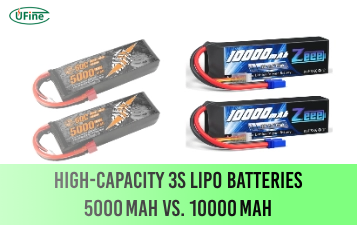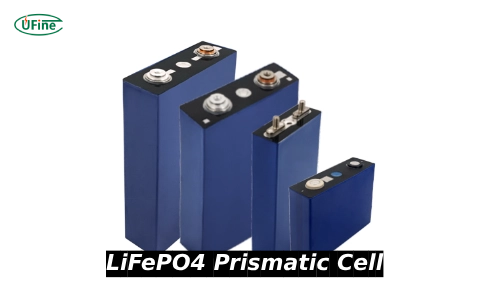Understanding the differences between pouch and prismatic cells is crucial for making informed decisions in lithium iron phosphate (LiFePO4) batteries. This article delves into these two battery types’ core distinctions, advantages, and applications, aiming to provide comprehensive insights for enthusiasts and professionals.
Part 1. LiFePO4 Batteries
Lithium Iron Phosphate (LiFePO4) batteries are renowned for their safety, longevity, and stability. They have become famous for various applications, including electric vehicles (EVs), solar energy storage, and portable electronics. The two primary formats for LiFePO4 batteries are pouch cells and prismatic cells. Let’s explore what sets them apart.
Part 2. What is a LiFePO4 pouch cell?
A pouch cell is a lithium-ion battery with a flexible, durable outer casing made from laminated aluminum foil. The design allows for a lightweight and compact battery with high energy density. Pouch cells are often used in consumer electronics because they fit into tight spaces.
Advantages of LiFePO4 Pouch Cells
1. High Energy Density
LiFePO4 pouch cells can pack more energy into a smaller space, making them ideal for portable devices and applications with critical weight and size.
2. Lightweight
The flexible casing reduces the battery’s overall weight, which is advantageous for applications like drones and wearable technology.
3. Flexible Design
The adaptability of LiFePO4 pouch cells allows for custom shapes and sizes, providing design flexibility for engineers and product designers.
4. Cost-Effective
Simpler manufacturing processes and fewer materials make LiFePO4 pouch cells a more cost-effective option for many applications.
Part 3. What is a LiFePO4 prismatic cell?
A prismatic cell is another type of lithium-ion battery that comes in a rigid, rectangular casing made from aluminum or steel. This design provides robust structural integrity and finds everyday use in applications requiring higher capacity and durability, such as electric vehicles and large-scale energy storage systems.
Advantages of LiFePO4 Prismatic Cells
1. Robustness
The rigid casing provides excellent structural integrity, reducing the risk of damage from external impacts or pressures.
2. Safety
LiFePO4 prismatic cells are less prone to swelling and leakage, enhancing their safety profile for demanding applications like electric vehicles.
3. Longer Lifespan
The sturdy design often means a longer operational lifespan, making LiFePO4 prismatic cells a reliable choice for long-term energy storage solutions.
4. Efficient Thermal Management
While not as efficient as pouch cells, LiFePO4 prismatic cells still offer good thermal management, which is crucial for maintaining performance and safety.
Part 4. Differences between LiFePO4 pouch cells and LiFePO4 prismatic cells
1. Form Factor
- LiFePO4 Pouch Cells: Flexible, lightweight, and compact. Ideal for applications where space is limited.
- LiFePO4 Prismatic Cells: Rigid, durable, and typically more extensive. Suitable for applications requiring robust and high-capacity batteries.
2. Energy Density
- LiFePO4 Pouch Cells: Generally offer higher energy density due to the absence of a heavy, rigid casing.
- LiFePO4 Prismatic Cells: Slightly lower energy density compared to pouch cells but compensate with better durability and structural integrity.
3. Durability and Safety
- LiFePO4 Pouch Cells: These cells are more susceptible to physical damage due to their flexible casing, but advancements in materials have improved their safety.
- LiFePO4 Prismatic Cells: Offer superior durability and are less prone to damage, making them safer for high-stress applications.
4. Thermal Management
- LiFePO4 Pouch Cells: Better thermal management due to their larger surface area allows for more efficient heat dissipation.
- LiFePO4 Prismatic Cells: Efficient thermal management but can be less effective than pouch cells in rapidly dissipating heat.
5. Cost and Manufacturing
- LiFePO4 Pouch Cells: Generally cheaper to manufacture due to simpler assembly processes.
- LiFePO4 Prismatic Cells: These are more expensive because of the additional materials and manufacturing complexity.
Part 5. LiFePO4 pouch cells and LiFePO4 prismatic cells challenges and considerations
1. Temperature Sensitivity
LiFePO4 pouch and prismatic cells can be sensitive to extreme temperatures, affecting performance and lifespan.
2. Swelling and Expansion
LiFePO4 pouch cells may swell over time, which can be a concern in tightly packed applications. LiFePO4 prismatic cells are less prone to this issue.
3. Cost
While LiFePO4 pouch cells are generally cheaper, the initial cost of LiFePO4 prismatic cells can be higher due to their complex manufacturing process.
4. Recycling and Disposal
Proper recycling and disposal of lithium-ion batteries are essential to minimize environmental impact.
Part 6. Applications of LiFePO4 pouch cells
1. Consumer Electronics
Smartphones, tablets, and laptops benefit from the high energy density and lightweight nature of LiFePO4 pouch cells.
2. Wearable Devices
Fitness trackers and smartwatches utilize LiFePO4 pouch cells for their compact and flexible design.
3. Drones
The lightweight and high-energy capabilities of LiFePO4 pouch cells make them perfect for drones, where every gram counts.
4. Portable Medical Devices
Devices like portable oxygen concentrators and defibrillators use LiFePO4 pouch cells for their reliability and compactness.
Part 7. Applications of LiFePO4 prismatic cells
1. Electric Vehicles (EVs)
LiFePO4 prismatic cells are a staple in the EV industry due to their robustness and safety, providing reliable and long-lasting power.
2. Solar Energy Storage
Large-scale solar energy storage systems benefit from the high capacity and durability of LiFePO4 prismatic cells.
3. Industrial Machinery
Heavy-duty machinery and equipment rely on LiFePO4 prismatic cells to withstand harsh operating conditions.
4. Backup Power Systems
Uninterruptible power supplies (UPS) and other backup power systems use LiFePO4 prismatic cells for longevity and reliability.
Part 8. FAQs
-
How do you charge LiFePO4 prismatic cells?
Charging LiFePO4 prismatic cells involves using a charger designed explicitly for LiFePO4 batteries. Following the manufacturer’s guidelines is essential to avoid overcharging, which can damage the battery. Continuously monitor the charging process to ensure safety. -
Can you parallel LiFePO4 pouch cells with prismatic cells?
While connecting LiFePO4 pouch cells in parallel with prismatic cells is technically possible, experts do not recommend doing so. The different internal resistances and capacities can lead to imbalances, reducing the efficiency and lifespan of the battery pack. It’s best to use cells of the same type and specification. -
What is the typical lifespan of a LiFePO4 prismatic cell?
A LiFePO4 prismatic cell typically has a 2000 to 5000 charge cycle lifespan, depending on usage and operating conditions. Proper care can extend the lifespan by avoiding deep discharges and maintaining optimal temperatures. -
Are LiFePO4 batteries safe for home use?
Yes, LiFePO4 batteries are considered safe for home use due to their stable chemistry and low risk of thermal runaway. They are often used in home energy storage systems and are a reliable option for backup power. -
How do you dispose of LiFePO4 batteries?
Dispose of LiFePO4 batteries through a proper recycling facility. Please do not dispose of them in regular trash, as they can harm the environment. Many battery retailers and recycling centers accept lithium-ion batteries for safe disposal.
Related Tags:
More Articles

High‑Capacity 3S LiPo Batteries: 5000 mAh vs. 10000 mAh
Compare 3S LiPo 5000mAh vs 10000mAh batteries by weight, power, and use. Find the best fit for your drone, RC car, or boat setup.
Top 5 Applications for Small 3S LiPo Batteries
Small 3S LiPo batteries power drones, RC gear, wearables, and robotics with high energy and low weight. Making them ideal for compact electronics projects.
Building and Charging Your Own 3S LiPo Pack: A Step‑by‑Step Guide
Learn how to build, balance, and charge a 3S LiPo battery pack safely at home with this complete DIY guide for hobbyists and beginners.
How to Choose the Right LiPo Battery Plug Type?
Discover the best LiPo battery plug types, how to choose them, and expert tips for safe usage, soldering, and maintenance.
Choosing the Right Connector for Your 3S LiPo Battery
Choosing the right 3S LiPo connector depends on current, space, and use. Learn the pros and cons of XT60, JST, EC3, and more.






